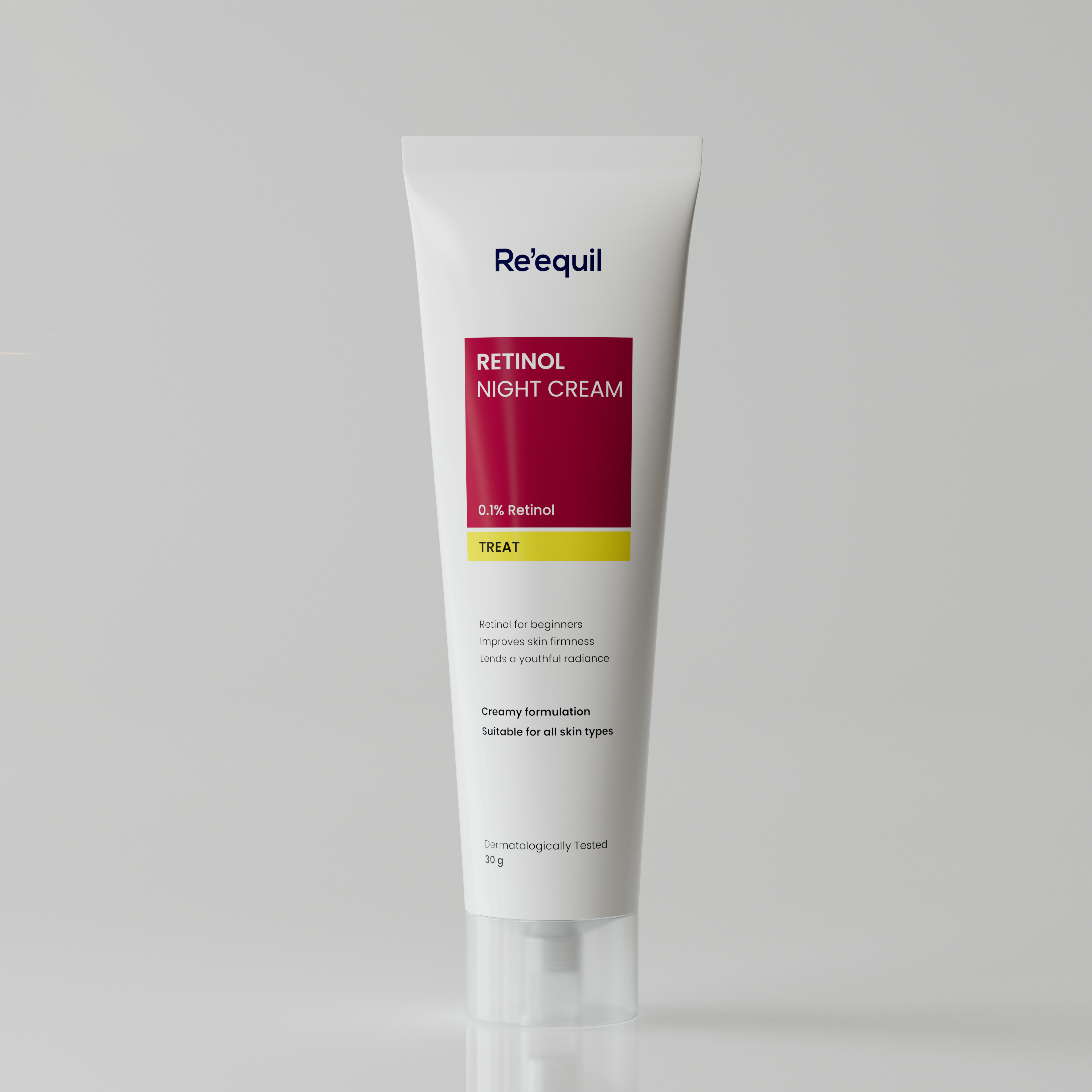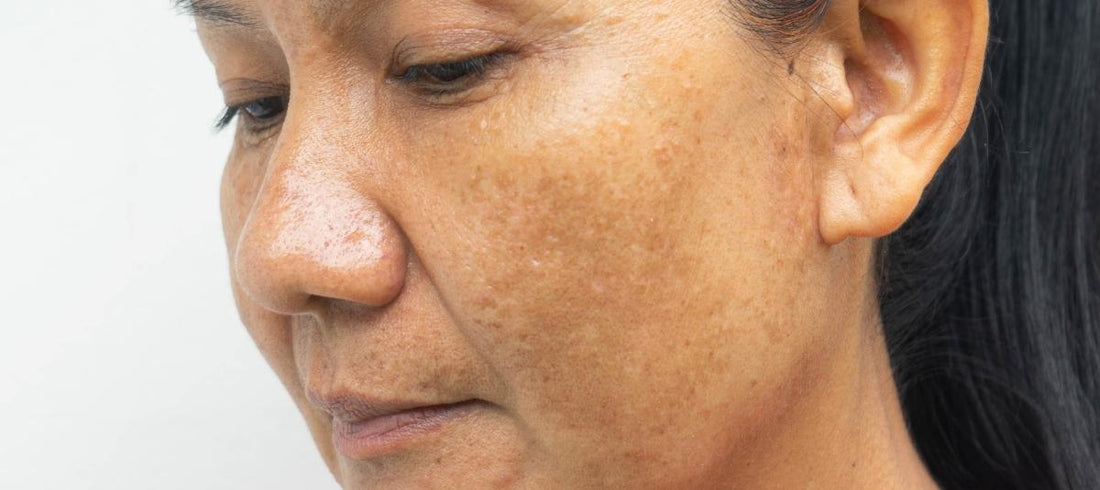From day 1 at school to the last, my mother used to drop and pick me. Everyday.
Twelve summers and twelve winters, we shared the sheer view of nature on our metallic grey activa! It used to be fun in the mornings but the afternoons were the toughest. The scorching heat of the sun at the peak hour felt like a burning furnace. And my mother, ignoring herself without covering her face with any cotton scarf, was there for me. Everyday.
With age, dark spots developed on her face, without her realising. Again, like typical bollywood mothers, she ignored it until those tiny dark spots stretched into a patch on her left cheek. She tried to treat it with everything possible– bleaches, skin whitening creams, steams, icing and what not! But the patch got even darker and more prominent. Worried, she called me up and we booked an appointment to get it checked.
Mother asked him what is this problem? How did this even happen? Is it serious? Oh wait, is it curable?
Here’s what he explained in detail. Read it carefully, maybe your family members or even you might be going through it without even noticing!
The dermatologist concluded - it was Hyperpigmentation. “It’s not rocket science, ma’am!” he assured.
Hyperpigmentation refers to a range of dermatological conditions that involve darkening of the skin. It is generally the result of your body increasing its melanin production, although the condition may be influenced by other less common factors. Like you must have been in the sun for longer durations without any protection.
The dark pigment usually occurs in small patches on the face and hands, but can be more widespread, including full-body coverage. While the hands, arms, and face are the most common sites of hyperpigmentation, it can feasibly occur anywhere on a person's body.
‘The good news- it is not usually dangerous. However, it is important to know the type of hyperpigmentation in order to treat it.'

-
Age Spots
As the body ages, melanin begins to affect your skin in more pronounced ways, causing increased hyperpigmentation, especially on the hands and face. This type of hyperpigmentation, also known as liver pots, is a direct result of cumulative sun damage. Years of direct exposure can cause dark areas to emerge on a portion of your skin regularly exposed.
-
Melasma
Melasma, on the other hand, occurs when there is a hormone imbalance in the body. During a disruption or fluctuation in the hormone levels, there is an imbalance in melanin production.
-
Post-inflammatory Hyperpigmentation (PIH)
"This is primarily caused by acne..." The dermatologist was explaining when all of a sudden I got worried about my acne marks!
He continued, "As your body heals following injury, aggravation, or an outbreak, it will elevate its melanin production to help compensate, causing post-inflammatory hyperpigmentation. This type of hyperpigmentation requires a different level of care and attention including consultation with an expert."
'Apart from types, the severity of the dark spots depends upon the causes behind them.'
1. Cumulative Sun Exposure
Hyperpigmentation is always an issue for people who spend a disproportionately large amount of time in the sun. Over time, sun exposure can cause your body to up its level of melanin production, eventually resulting in dark spots in places like your hands, face, arms, and legs.
And now the reason is clear to me and my mother!
2. Aging
This was the day I realised that my mother is aging. Don't want to sound dramatic but yeah, it hit me hard!
Aging is inevitable and it increases the risk of hyperpigmentation if left ignored. The dermatologist explained, “as the body ages, melanin has a greater effect on your skin tone, often causing splotches —or even large-scale patches— to emerge.”
3. Existing Skin Conditions
Pre-existing skin and medical conditions, i.e. medication usage, can also cause hyperpigmentation to emerge. If you have other skin care issues, understand that you are at an increased risk of developing dark patches on your skin's surface.
4. Wound Healing
Skin trauma is another contributing factor. If the surface of your skin has been injured or aggravated, such as with a burn, acne, or severe allergic reaction, then your bodily chemistry may compensate during the healing process.
5. Stress
"As a parent, I can understand how stressful it gets at times." the dermatologist sympathised with mom. There have been many instances in your life where stress has been at its peak. And we know that stress, however, is the root of many diseases and may sometimes contribute to hyperpigmentation. Protect your skin by properly attenuating your stress level.
6. Incorrect Skin Care Regimen/Products
Enter any local beauty parlour and you’ll find a bunch of ladies with bleach lathered to their faces! It’s their favourite product, and I think my mother’s too! The dermatologist explained the harms of incorrect skincare regimen accelerated by uninformed product choices.
He explained that not all skin care products are created equal. In fact, those with lesser-quality ingredients or harsh, skin-bleaching elements, such as hydroquinone, can actually contribute to melanin build-up rather than eliminating it. With repeated use —or improper use across large areas of your body— skin bleaching products can actually cause another diagnosis called "exogenous ochronosis" which causes blackish blue spots to emerge.
Treating hyperpigmentation starts with eliminating the harmful skin care practices from your existing regimen and replacing them with all-natural alternatives better suited for your body' chemistry.
7. Heat From Cooking/ Kitchen
Mom loves to cook. But who knew her love would be one of the reasons behind the dark spots. How?
Surprisingly, time spent in the kitchen can contribute to hyperpigmentation! Whether in your own home or in a commercial setting, the very act of cooking takes place in an enclosed space. As a result, high heat and evaporating gas have a comparable effect on your skin to the sun's rays.
8. Air Pollution
Of course, activa is to be blamed!
When it comes to skin tone, don't rule out environmental effects. Areas with heavy concentrations of smog and other ambient pollutants can wreak havoc on your skin. Over time, exposure to atmospheric pollutants can penetrate the outer layer of your skin, reducing the body's natural barrier against surface inflammation.
Mom was relieved when the dermatologist affirmed that hyperpigmentation is curable. Here are the most effective methods he relayed to get rid of hyperpigmentation
1. Anti-pigmentation creams
Unlike skin bleaching and whitening creams, anti-pigmentation creams are a safer option to treat hyperpigmentation. Bleaching tends to be harsh on skin and damages the skin barrier making the blemishes even more noticeable.
So, rather than using harsh chemical agents to essentially bleach your skin, it's better to use all-natural ingredients that can help your skin to properly heal in the form of anti pigmentation creams. Such creams are gentle on skin and work actively on the targeted concern. The key ingredients that you should look for include:
Pterocarpus marsupium comes from a deciduous tree that's native to India. It contains antioxidants and UV protection, as well as skin-lightening qualities due to its phytochemical arrangement.
Tetrahydrocurcumin does the same thing that many skin bleaching products do, only naturally! It helps your body to regulate its melanin production, thus lightening pigmentation.
Alpha arbutin comes from berries and fruits and is used not only to lighten existing dark patches, but also as a preventative to additional discolorations. Alpha arbutin actively works to reduce the body's melanin production, lightening and reducing dark skin, age spots, PIH, and other related skin issues.
2. Vitamin C Serums
Serums containing high amounts of vitamin C are also critical in treating, reducing, and eliminating instances of hyperpigmentation. Vitamin C is important because it helps provide your skin with beneficial antioxidants that help to reduce free radicals. In turn, you'll see your unsightly dark spots begin to rapidly fade with continued vitamin C use.
People with normal skin type should look for products containing ethyl ascorbic acid as it inhibits the overproduction of tyrosinase- enzyme causing excessive melanin production.
More oily, acne-prone skin types should seek out products with both sodium ascorbyl phosphate and camellia sinensis leaf extract.
3. Sunscreen
One of the single, most effective methods for treating and preventing hyperpigmentation may already be in your medicine cabinet. Don't underestimate the role that sunscreen plays in soothing darkened skin.
Regular use of sunscreen helps to block incoming UV rays of course, serving as a key preventative measure. Combine with the right skin care regimen, however, helps you to lessen accumulated light damage, restoring your skin's natural tone.
4. Laser Treatment
Finally, there's laser treatment available for more severe cases of hyperpigmentation. Laser treatment should only be done in direct consultation with a qualified dermatologist.
There are two types of laser treatments available:
- Ablative
- Non-ablative
Ablative is more intense, peeling the top layer of your skin. Non-ablative only works with the surface in an attempt to mechanically induce collagen production.
Laser treatment isn't for everyone, however. It can be especially harsh on the skin if not done carefully. In some skin types, it can even cause increased darkening rather than the desired effect. Always take a consultation beforehand.
Final takeaway
My mother was worried and concerned as hyperpigmentation can have a profound impact. Fortunately, the dermatologist directed her to the right path assuring the condition is rarely serious and highly treatable. No matter what, always remember that patience, positivity, and perseverance go a long way towards helping your skin to heal properly. Pairing healthy lifestyle choices with a purposeful skin care regimen and regular use of sunscreen as a prophylactic creates the ideal conditions for treating —and eliminating— your hyperpigmentation.

























